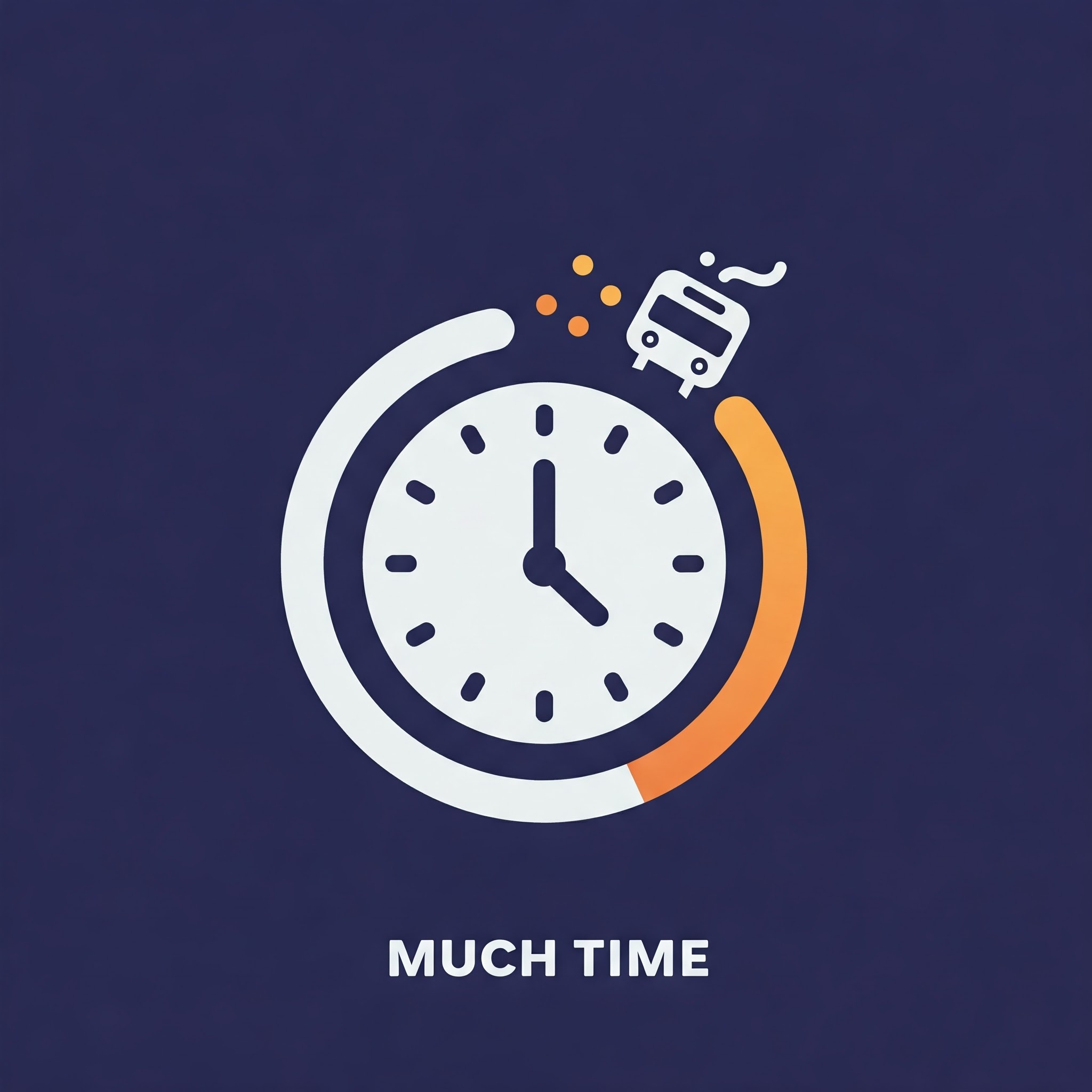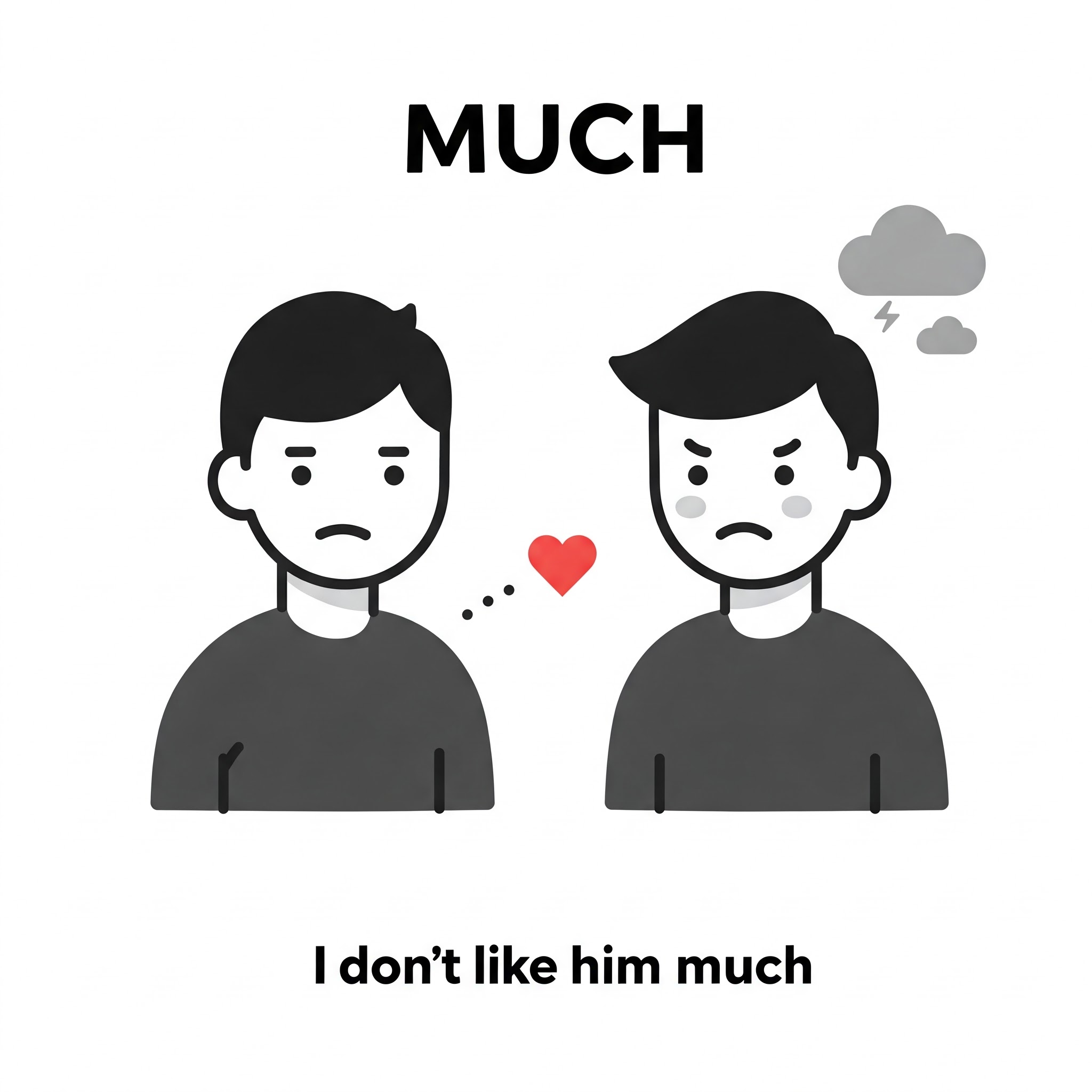Much
Definition
Much is a determiner, pronoun, and adverb. It is used to indicate a large amount or degree of something, often in questions, negative sentences, or to express comparison.
Parts of Speech
- Determiner
- Pronoun
- Adverb
Pronunciation
American English
- IPA Pronunciation: /mʌtʃ/
- Respelling: MUHCH
British English
- IPA Pronunciation: /mʌtʃ/
- Respelling: MUHCH
Etymology
The word "much" originates from Old English "myċel," meaning "great" or "large," derived from Proto-Germanic "*mikilaz" and Proto-Indo-European "*meg-" meaning "great" or "large."
Derivatives
- Muchness (noun)
- Overmuch (adjective/adverb)
- Much-loved (adjective)
- Much-needed (adjective)
- Much-like (adjective)
Synonyms
- Many (quantitative context)
- Plenty (informal context)
- A lot (colloquial context)
Antonyms
- Little
- Few
- None
Usage
The term "much" is widely used in everyday speech and writing to express quantity, degree, or emphasis. For example, "There isn’t much water left," or "I don’t like this idea much."
Related Terms
- More: A greater quantity, number, or degree.
- Many: A large number of.
- Quantity: The amount or number of something.
Detailed Definitions
Determiner
- Used to indicate a large amount of something:
- Example: "There isn’t much time left before the train departs."
Pronoun
- A large amount or quantity:
- Example: "Much has changed since we last met."
Adverb
- To a great degree or extent:
- Example: "I don’t like him much."
- Frequently or often (archaic):
- Example: "He was much in thought during the meeting."
much



🇨🇳 Mandarin
- 很多 (hěnduō): a lot
- IPA Pronunciation: /xən tu̯o̯/
- Respelling: (hen-dwo)
🇮🇳 Hindi
- बहुत (bahut): a lot
- IPA Pronunciation: /bəɦut̪/
- Respelling: (bah-hoot)
🇪🇸 Spanish
- Mucho: much, a lot
- IPA Pronunciation: /ˈmut͡ʃo/
- Respelling: (moo-cho)
🇫🇷 French
- Beaucoup: a lot
- IPA Pronunciation: /boku/
- Respelling: (bo-koo)
🇸🇦 Modern Standard Arabic
- كثيراً (kathīran): a lot
- IPA Pronunciation: /kaθiːra/
- Respelling: (ka-thee-ran)
🇧🇩 Bengali
- অনেক (ônek): a lot
- IPA Pronunciation: /ɔnek/
- Respelling: (oh-nek)
🇷🇺 Russian
- Много (mnogo): a lot
- IPA Pronunciation: /ˈmnogə/
- Respelling: (mno-guh)
🇵🇹 Portuguese
- Muito: a lot
- IPA Pronunciation: /ˈmujtu/
- Respelling: (moo-ytoo)
🇮🇩 Indonesian
- Banyak: a lot
- IPA Pronunciation: /baɲak/
- Respelling: (ba-nyak)
🇩🇪 German
- Viel: a lot
- IPA Pronunciation: /fiːl/
- Respelling: (feel)
🇯🇵 Japanese
- 多い (Ōi): many, much
- IPA Pronunciation: /oː.i/
- Respelling: (oh-ee)
🇻🇳 Vietnamese
- Nhiều: many, much
- IPA Pronunciation: /ɲiə̯˨˩/
- Respelling: (nyuh)
🇰🇷 Korean
- 많이 (mani): a lot
- IPA Pronunciation: /ma.ni/
- Respelling: (mah-nee)
🇹🇷 Turkish
- Çok: a lot
- IPA Pronunciation: /t͡ʃok/
- Respelling: (choke)
🇵🇰 Urdu
- بہت (bahut): a lot
- IPA Pronunciation: /bəɦʊt̪/
- Respelling: (bah-hoot)





